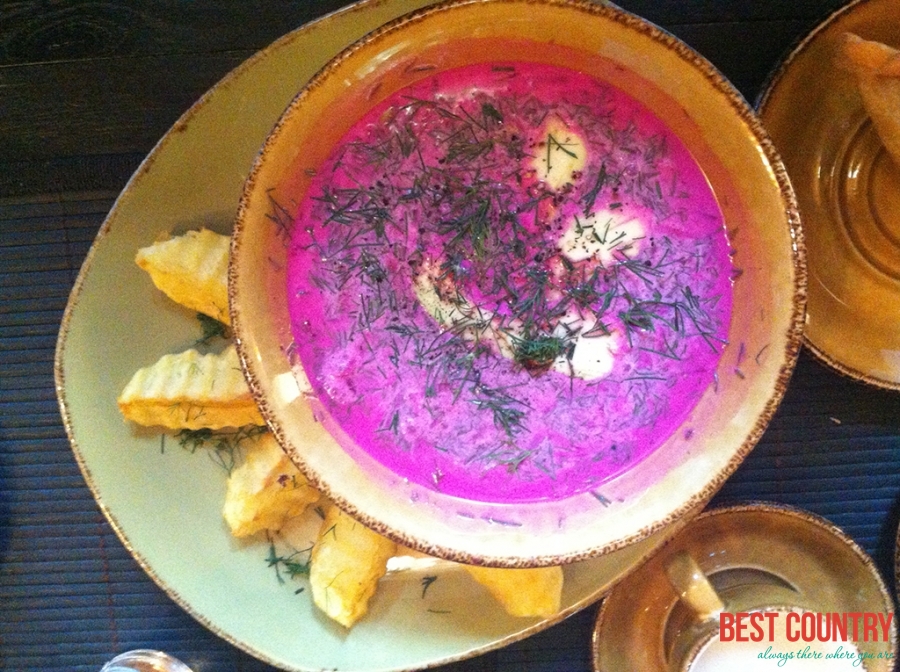Lithuania
Overview of Lithuania
Officially name: The Republic of Lithuania
Capital: Vilnius
Largest city: Vilnius
Official language: Lithuanian
Government: Semi-presidential republic
Lithuanian Cuisine
The products featured in Lithuanian cuisine are suited to the country's cool and moist northern climate: barley, potatoes, rye, beets, greens, berries and mushrooms are locally grown and dairy products are a specialty of the country.
Rivers and lakes of Lithuania
Rivers of Lithuania are typical lowland rivers: they are slow, they make meanders, the valleys are wide. Because of abundant precipitation, the river net is dense: on the average 0.99 km of rivers flow in 1 km² of the territory.
